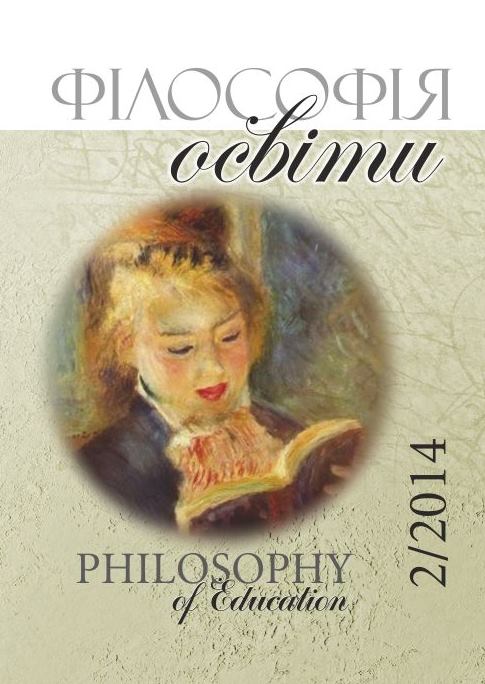Practical Philosophy of Postnonclassical Science about Scientific Truth and Human Freedom
Keywords:
postnonclassical science, scientific truth, human freedom, nonlinear processesAbstract
The reasons to reflect on the scientific truth as nonlinear process in postnonclassical science are considered in the article. Philosophy of postnonclassical science is depended as practical philosophy as far as the reflection on these reasons founds the opportunity of human freedom. Ontologically freedom of choice is connected with existence of more, than
one, possibilities for events to carry out. It is typical for non-linear dynamics of self-organization processes as subject of postnonclassical nonlinear science. Mathematically graphics of nonlinear equations solutions consist the special (bifurcation) points as points of the branching. These different branches explicit the real necessities, including choice by chance between them. The bifurcation points could be understood as the situation where effective causes become on the ground of nonlinearity in the conditions happened by chance.
Epistemologically both predicting, based on two solutions of nonlinear equations, are true. It means the conception of scientific truth has to be revised. This revision based on experience of critical analysis of the scientific truth conception made by K. Popper, H. Putnam, M. Dammit, P. Kopnin. The very possibility to act for favorable choice makes actual the axiological aspects of philosophical analysis also.
Downloads
-
PDF (Українська)
Downloads: 296
Published
How to Cite
Issue
Section
License
- Authors who publish with this journal agree to the following terms:
- Authors retain copyright and grant the journal right of first publication;
- Authors are able to enter into separate, additional contractual arrangements for the non-exclusive distribution of the journal's published version of the work (e.g., post it to an institutional repository or publish it in a book), with an acknowledgement of its initial publication in this journal.





